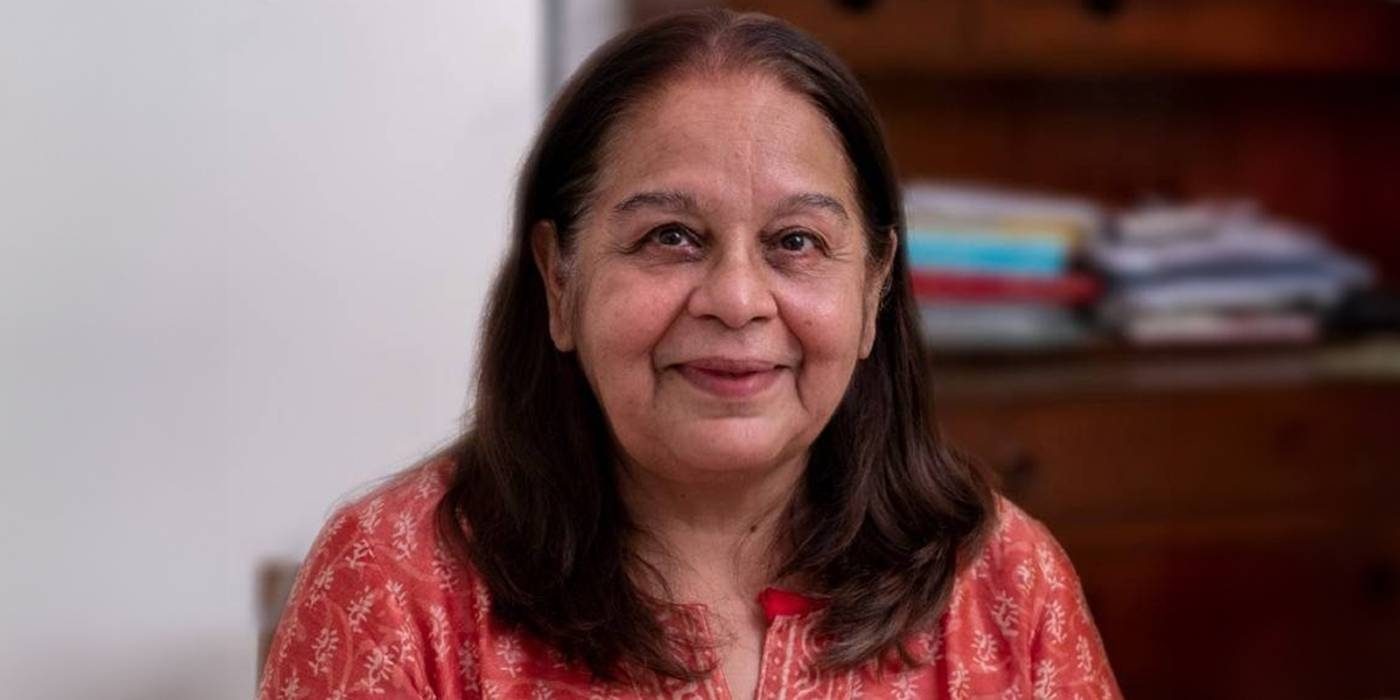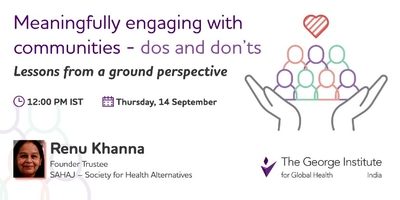
Meet Renu Khanna, Distinguished Fellow
The George Institute recognises Renu for her significant work in gender equity and meaningful engagement with communities, areas we aim to strengthen through collaborating with and learning from Renu.
Renu Khanna is a passionate advocate for women’s health and rights. Based in Vadodara in the state of Gujarat, India, Khanna co-directs SAHAJ-Society for Health Alternatives (SAHAJ), a non-governmental organisation that focuses on health and education issues and works with children, adolescents and women.
How long have you been working in gender equity?
I have over four decades of experience in gender equity and human rights related to health in general, and sexual and reproductive health in particular.
I have worked with and engaged in different capacities as a practitioner (designing and managing community-based women’s health programs), as a researcher, and as a mentor; with marginalized communities at the grassroots level, with civil society organisations and policymakers nationally.
How did you become involved in this work?
As a practitioner I worked in a tribal district with very poor development indicators, for over 18 years. We developed a community-based women’s health program incorporating indigenous knowledge and feminist methodologies.
In 1984 I co-founded a community-based non-profit organization SAHAJ (Society for Health Alternatives) which began its work with the urban poor waste-picking women. Over the years SAHAJ has engaged with a range of civil and political rights issues of the urban poor, including sexual and reproductive health and rights (SRHR) of urban poor women and girls, adolescents and young people’s rights, and transformative masculinities. More recently, SAHAJ is working on a collaborative SRHR program with an intersectional perspective, with young people from marginalized communities (Dalit, Adivasi, trans women and “men who have sex with men” and girls living with disabilities.)
For 15 years I worked with the Public Health Department of the Bombay Municipal Corporation as a Co-Principal Investigator in a series of collaborative projects with the Liverpool School of Tropical Medicine (LSTM), UK, and the Royal Tropical Institute (KIT) Amsterdam. Currently, I am the Vice Chair of Advisory Group of ARISE Consortium led by the LSTM, which aims to transform the lives of vulnerable people in informal urban settlements in cities around the world.
Most recently, I taught a course on Gender, Health and Rights at the Azim Premji University, a leading University in India (for MA Development Studies students in 2021 and 2022), and guide research of students and community-based organisations.
Tell us a little more about work beyond being a ‘practitioner’.
In addition to my ‘practitioner’ commitments, I am active in several pro-people’s movements, including feminist and SRHR movements and coalitions – within India, regionally and globally. Because of my active engagements with these movements, I am well able to translate and amplify the grassroots lessons learnt into possible policy measures.
Over the years, I have contributed to several UN organisations. Currently, I am a Lancet Commissioner for Gender and Global Health, and a member of the Gender Advisory Panel of WHO; I have a unique vantage point amplifying the voices of the excluded and marginalised women and girls from the global south to influence the global discourse on health.
What is your big ambition for change in the next five years? (and how can we work together on achieving it?)
To be able to contribute to research, policy making, and programming that incorporates a gender and equity lens, recognising intersectionalities of various kinds, and accounting for them, to move towards social justice. In this world of polycrises of climate change, war and conflict and increasing disparities to be able to contribute to strengthen movements for peace, planetary health, democracy and social justice. If I can help to integrate these perspectives in any way in the mission of The George Institute I would be very happy. I would love to explore the work of colleagues at TGI and learn from them. My ambition is to work with friends and fellow travellers towards compassionate and human health care.


